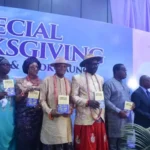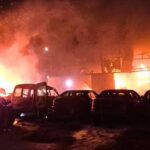News Ananlysis by Doris Esa, News Agency of Nigeria (NAN)
Animal welfare is an interesting global issue. In many countries it has received dedicated attention by researchers, conservationists, consumers and governments.
The need to ensure the general well-being of both wild and domestic animals is mandatory now in many developed countries.
In Nigeria, where there have been snags, the Federal Government said, to enhance the welfare of animals, it had identified the need to develop a response strategy during emergencies and disasters.
The resolution was reached as one of the outcomes of a national stakeholders’ consultative meeting on Animal Welfare During Emergencies and Disasters in Nigeria.
The meeting was organised by the Department of Veterinary and Pest Control Services, Federal Ministry of Agriculture and Rural Development, (FMARD).
It brought together stakeholders in the industry to brainstorm and come up with strategies that would address ways to rescue and rehabilitate animals during disasters and emergencies.
Participants deliberated on the three basic principles of response strategies: Reducing or avoiding losses of animals from hazards; ensuring prompt assistance to animals affected; and achieving rapid and effective recovery of the animals.
Speaking at the event, Dr Musa Inuwa, the Overseeing Director, Department of Veterinary and Pest Control Services, FMARD, said the federal government was stepping up efforts aimed at adopting global best practices in Nigeria’s animal welfare strategy.
He also said the meeting would serve as a medium for awareness creation among relevant stakeholders on good animal welfare practices.
Inuwa, who is also the Chief Veterinary Officer of Nigeria (CVON), said the efforts were in line with the guidelines and standards provided by World Organisation for Animal Health (WOAH).
“The essence of the meeting is to provide a platform for effective engagement and interaction among relevant stakeholders on implementing policies on matters concerning the general care of animals”, he said.
He said the National Animal Welfare Strategy for Nigeria was approved by the National Council on Agriculture in 2016.
According to him, the approval was followed by the inauguration of the National Council on Animal Welfare by the Minister of Agriculture and Rural Development on Aug. 4, 2022.
Inuwa urged the stakeholders to serve as credible animal welfare ambassadors in their various capacities and within their areas of operation.
Dr Umakaltume Abubakar, Deputy Director, Department of Veterinary and Pest and Control Services in the ministry, captured the essence of animal welfare.
She said animal welfare covers the physical and mental state of an animal in relation to the conditions in which it lives and dies.
Abubakar explained that an animal could be said to experience good welfare if it was healthy, comfortable, well nourished, safe, and free from pain, fear and distress.
However, disasters such as flooding, rivers overflowing their banks, drought, and deforestation, among others pose a heavy challenge to the survival of animals in many countries, including Nigeria.
Earthquakes, hurricanes, volcanic eruptions, tsunamis, forest fires and floods are other natural disasters that with the potential for devastating on the welfare of animals.
“Animals are vulnerable in the event of natural disasters, especially those living in the wild. Hence natural disasters that harm humans also harm animals.
“In disaster situations, the welfare of animals both domestic and wild is compromised.
“They are the forgotten victims of disasters, millions of them suffer and die each year,” she said.
She further said the animals also experience the same terrible effects of disasters that humans do such as injury, starvation, thirst, habitat destruction, displacement, illness and stress.
“It is our responsibility as stakeholders to come together and determine measures that we need to put in place to mitigate the effects of disaster on our animals,” she said.
Dr Abdulkareem Durosinlorun, Head, Quality Assurance and Standards Division, Department of Veterinary and Pest Control Services, FMARD, said there is a need for rescuers to take cognizance of animals during disasters and emergencies.
“The Department of Veterinary & Pest Control Services identified the need to develop a response strategy for animals during emergencies and disasters.
“Traditionally, when disasters strike the main focus is on humans but we also need to pay attention to the welfare of our animals which tend to be badly hit and suffer in silence.
Similarly, the National President, Nigerian Veterinary Medical Association, Dr Olutoyin Adetuberu, urged stakeholders should consider animal welfare during disasters as part of the contribution to boosting the animal sector of the economy.
“We are looking at how to incorporate the animals’ health components into the National Emergency Management Agency, if we have veterinarians there, they will be able to rescue these animals”, she said.
Adetuberu said the need to rescue animals that have escaped from their shelters during disasters and emergencies could not be overemphasised.
“Usually, when there is a disaster, you see all that human beings are being rescued and there are data of those being rescued but we don’t take cognizance of the animals.
“We are not just rescuing them because they are animals, we are also considering the human aspects of it so that these loose animals cannot come and attack human beings,” she said.
Adetuberu called for the setting up of committees on animal rescue during emergencies and disasters.
Experts at the event recommended that during emergencies, animal rescuers should always be involved in rescue operations.
Stakeholders argue that the way forward to promote the welfare of animals is by protecting animals through well-enforced laws and regulations.
They contend that should be rapid veterinary response during disasters and emergencies so that animals rescued are rehabilitated or treated.
They also advise that the public should be educated on animal care during disasters and emergencies, as well as setting up temporary rescue camps for veterinarians and para-veterinarians. (NANFeatures)(www.nannews.ng)











